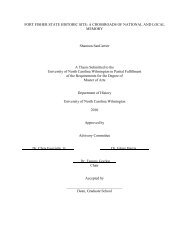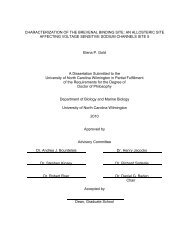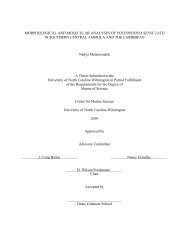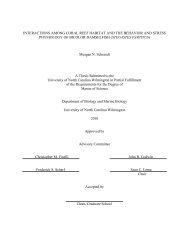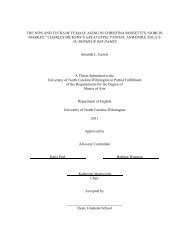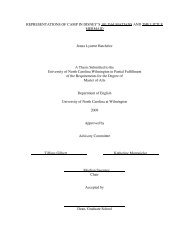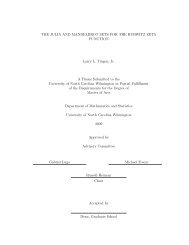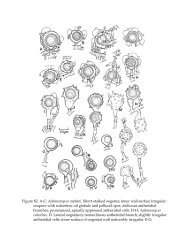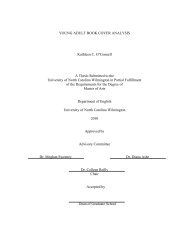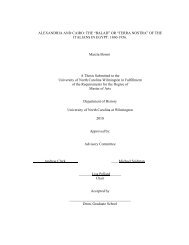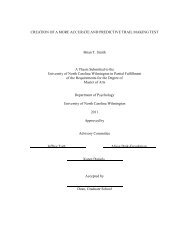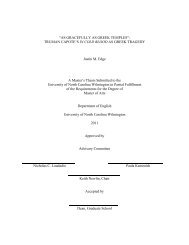AN AUGURY OF REVOLUTION: THE IRANIAN STUDENT ...
AN AUGURY OF REVOLUTION: THE IRANIAN STUDENT ...
AN AUGURY OF REVOLUTION: THE IRANIAN STUDENT ...
You also want an ePaper? Increase the reach of your titles
YUMPU automatically turns print PDFs into web optimized ePapers that Google loves.
embarrassing to the United States Government in the conduct of its relations with a friendly<br />
power.” 175<br />
Robert Kennedy was under extreme pressure from the State Department to bring the<br />
situation under control. However, instead of suggesting deportation, Kennedy issued the<br />
students a warning by saying that members of the ISAUS would not be shown preferential<br />
treatment if they continued to be vocal about their anti-shah beliefs and participate in<br />
“objectionable behavior.” 176 Raymond Ferrell, Commissioner of Immigration and Naturalization<br />
for the Department of State argued that objectionable behavior was exemplified in the protests<br />
during Princess Ashraf’s visit and the 23 September protests at the headquarters of the Iranian<br />
U.N. delegation in New York. Farrell told the two students that they were admitted to the United<br />
States to study, not to engage in political activity. 177<br />
Despite the pleas of the shah and the State Department, Fatemi and Qotbzadeh ultimately<br />
won their legal battle with some assistance from the Justice Department. Attorney General<br />
Kennedy did not always have an amiable relationship with the State Department. Kennedy<br />
favored the liberal admission of foreigners into the United States, and also permitted them to<br />
remain in the country when it may have been dangerous for them to return home. When Rusk<br />
approached Robert Kennedy about the deportation of Fatemi and Qotbzadeh, along with some of<br />
their fellow Iranian students in the Washington area, he knew that the attorney general would not<br />
be swayed by the fact that these students were anti-shah. Therefore, Rusk argued that the 30<br />
students were communists. Kennedy then sought advice from his good friend, Supreme Court<br />
175 Memo of Conversation, “Warning to Anti-Regime Students in the United States,” 24 December 1963, RG 59,<br />
NA.<br />
176 Memo of Conversation, “Warning to Anti-Regime Students in the United States,” 24 December 1963, RG 59,<br />
NA; Raymond Farrell defined ‘objectionable behavior’ as “harassment and insulting of visiting Iranian royalty and<br />
Government dignitaries; forced entry into Iranian diplomatic premises in this country; and distribution in the U.S. of<br />
communist publications and extracts therefrom.”<br />
177 Memo of Conversation, “Warning to Anti-Regime Students in the United States,” 24 December 1963, RG 59,<br />
NA.<br />
47



